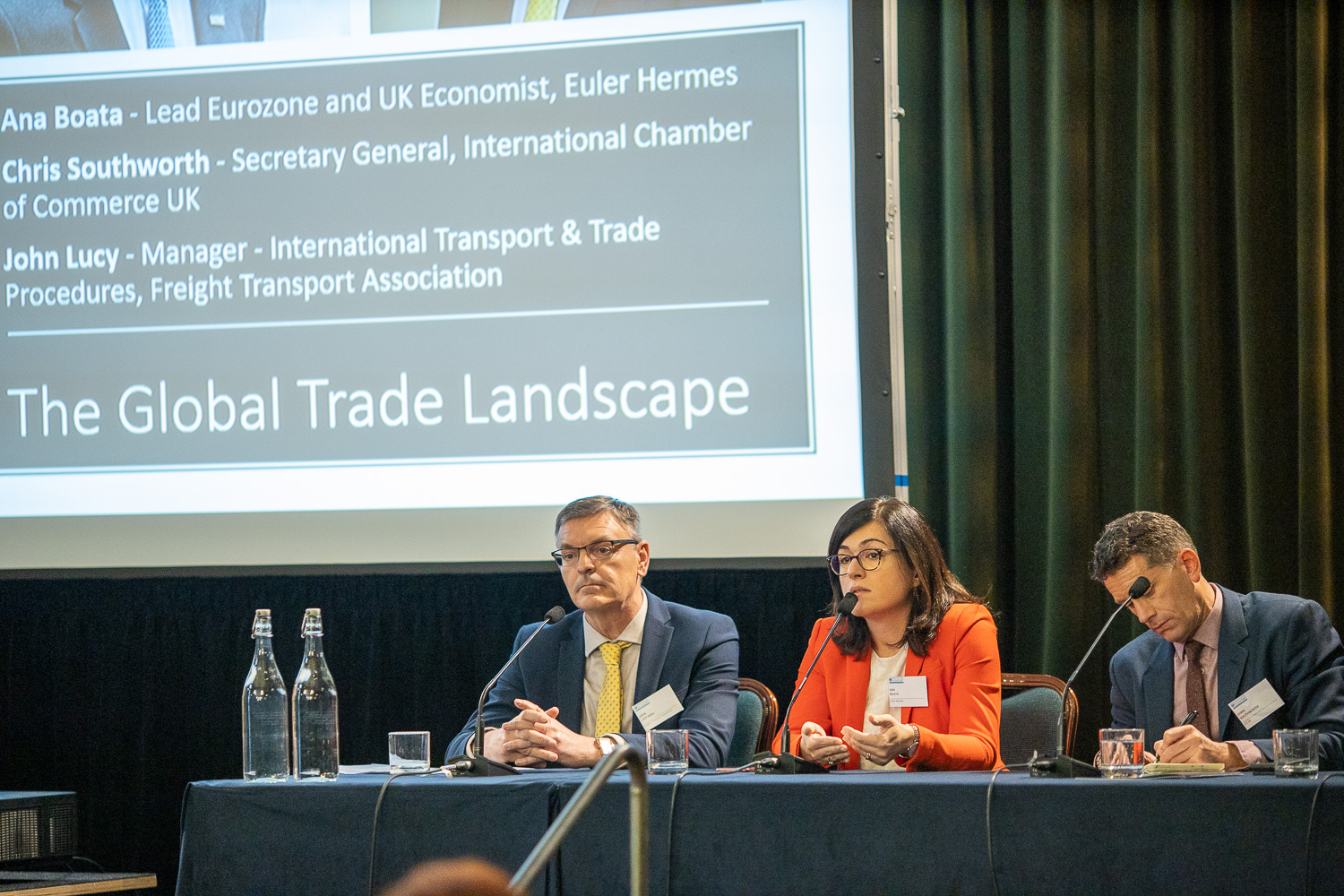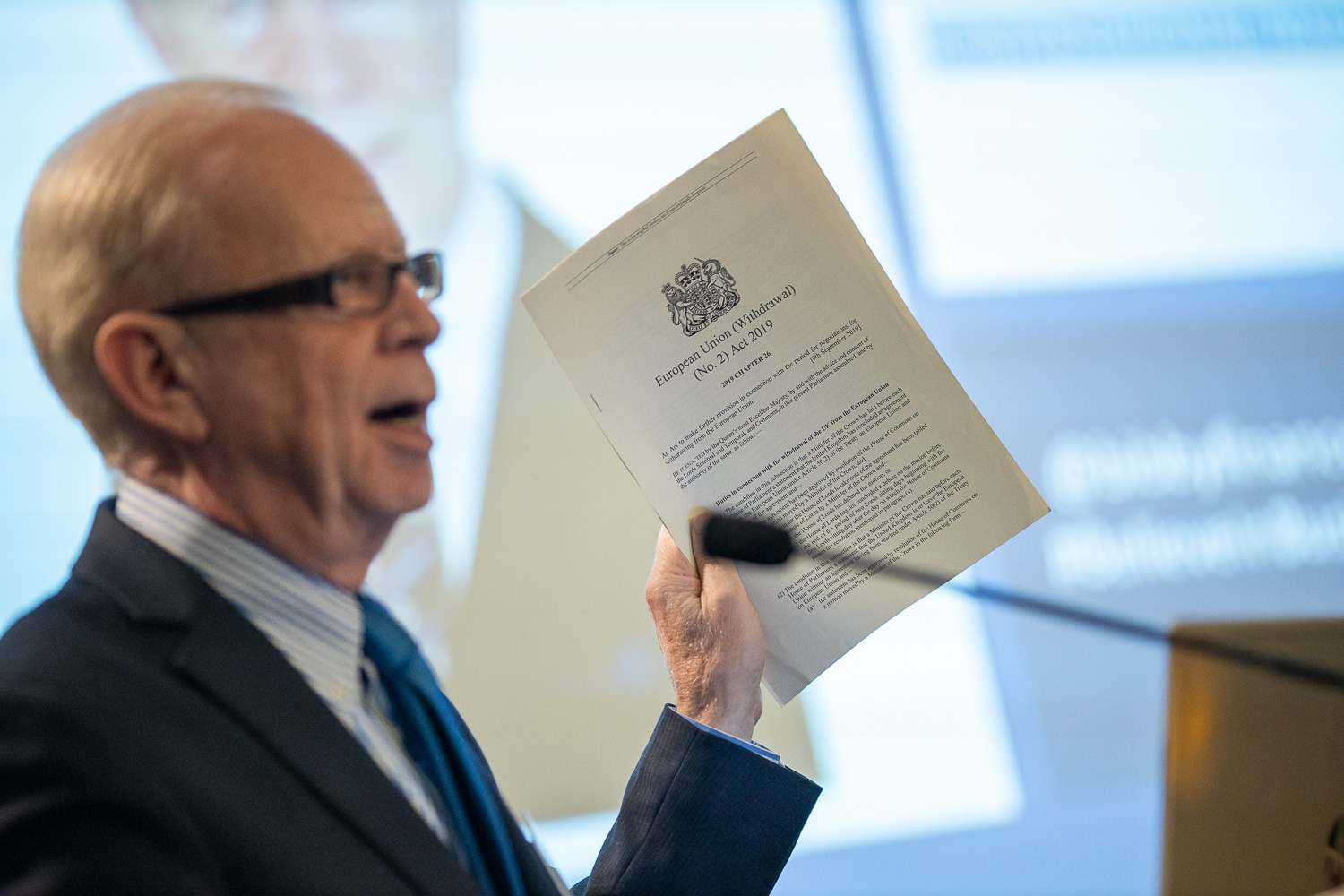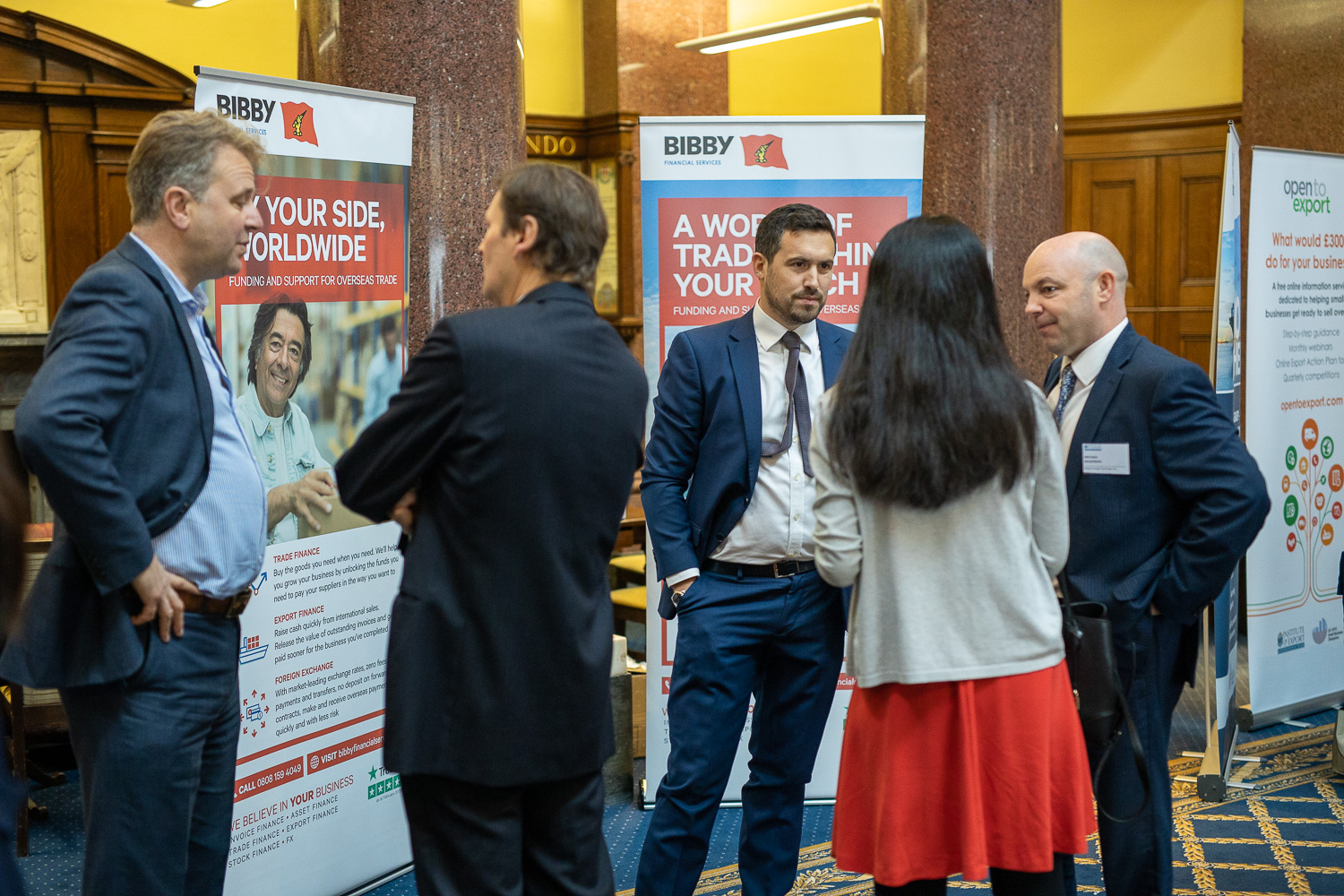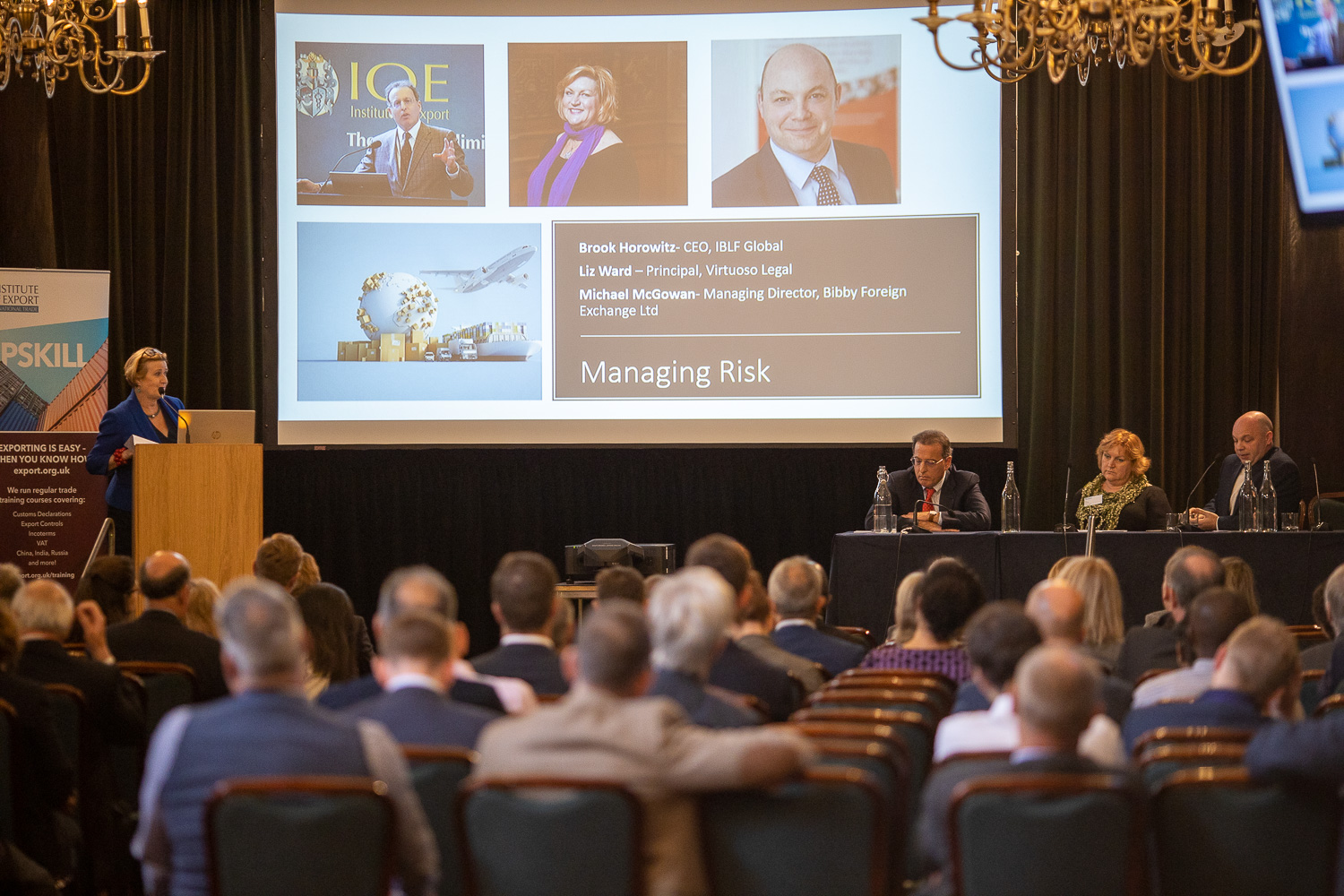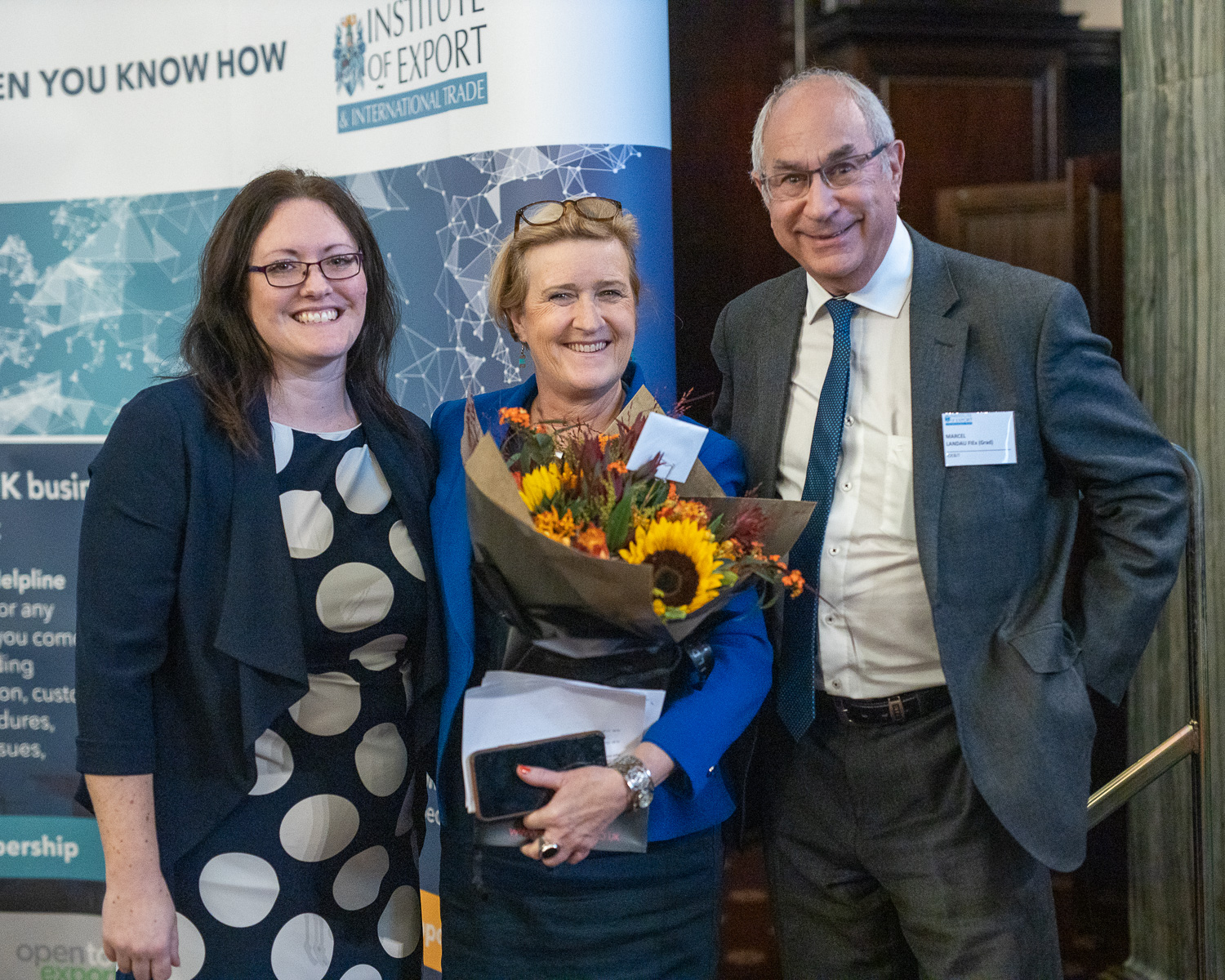Report from the 2019 London World Trade Summit
The Institute of Export & International Trade hosted its annual World Trade Summit on 23rd October at The Law Society in London. The event took place amid growing speculation about the prospects of a winter General Election, following the Government’s defeat to its proposed timetable for the passing through of its EU Withdrawal Agreement Bill and before a decision from the EU regarding a requested extension to the October 31st deadline for passing the deal.
A gloomy mood around Brexit, but skilled trade professionals will help us get through it
Lord Empey, updating delegates about the debates and mood in Parliament at the time, noted that the continued delays of the bill were causing businesses continued uncertainty and, although a ‘No Deal’ would be more damaging, businesses desperately needed clarity about the UK’s trading terms with the EU. He was pessimistic about the prospects of an imminent resolution to the Parliamentary inertia around Brexit. He did note, however, that people with qualifications and skills around international trade will be key to ensuring businesses can deal with the ramifications of the UK withdrawing from the EU.
Jim Davis, Managing Director for Export Finance at Bibby Financial Services, gave examples of the impact Brexit is already having on SMEs. He cited Bibby’s recent research into business awareness and confidence relating to international trade, noting that 26% of businesses polled had delayed funding commitments due to Brexit. He stated that, regardless of Brexit, first-time exporters need clear and proper contracts when entering new markets and noted that a worrying number of smaller businesses aren’t fully aware of the myriad tasks and checks that international trade requires.
Lesley Batchelor OBE, speaking at her last public engagement as the Director General of the Institute, echoed this point and gave an overview of the training and qualifications that the Institute provides. Looking at the broader picture of global trade, Lesley noted that the UK needs to back the World Trade Organisation and the rules-based order of trade, whatever our path post Brexit.
Looking at the bigger picture
Every year the London Summit features a panel discussion looking at the broader global trade landscape, although this year’s iteration again inevitably focussed on the impact of Brexit on the UK’s future trade position.
Chris Southworth, Secretary General at the International Chambers of Commerce UK, noted that Britain, as an independent trading nation, will not be in the ‘premier league’ of states alongside China, the USA and the EU, but will need to act cleverly as a second-tier nation to retain influence. He said that UK engagement with organisations like the WTO is growing, recalling how UK representation at the WTO Public Forum has grown from a handful of 4 or 5 to a cohort of well over 100.
John Lucy, Manager for International Transport & Trade Procedures at the Freight Transport Association, noted how Brexit uncertainty means businesses and the logistics industry are not currently sure how they will be getting goods to the doors of customers in the near future and noted that new infrastructure will be needed should Brexit go through. He also warned that businesses will need to be aware that the freight industry will be extremely busy once Brexit goes through.
Ana Boata, Lead Eurozone and UK Economist at Euler Hermes, further warned that the bigger picture is not particularly encouraging either, noting that global trade is currently contracting. Discussing the role that the USA-China trade war has had in the global economic slowdown she did offer some optimism, noting that trade flows are changing, with new flows starting to substitute US-China trade.
However, with the USA looking increasingly likely to turn its attention to the EU in terms of its increasing trade protectionism, the discussion gave the audience plenty of pause for sombre reflection on what has been and will probably continue to be a difficult period for global trade.
Plenty of risk – but it can be managed
The second panel of the day went further into the specific risks that businesses encounter when entering new markets. Brook Horowitz, CEO of IBLF Global, spoke about how businesses need to embrace cultural variety in international markets but stay aware that certain acts could be construed as bribes or corruption. He warned that UK businesses need to comply with anti-bribery legislation, particularly the UK’s Bribery Act.
Liz Ward, Principal of Virtuoso Legal, said that the biggest risk in international trade is not getting paid and argued that businesses need to view getting a contract properly drawn up as an investment that protects their business.
Michael McGowan, Managing Director at Bibby Foreign Exchange Ltd, then noted the impact of Brexit on the value of the Pound, which will likely be an ongoing issue for years to come. He traced back the impact it has already had since the 2016 referendum and anticipated some of the immediate events that could trigger further spikes and falls.
The panel concluded that although global trade does come with significant risks for exporters, there are ways for businesses to mitigate them and ensure that exporting is a profitable and cost-effective exercise – whether that be legal protections or measures to manage currency volatility.
Furthermore, they noted that there is a wealth of support out there for exporters - a point that was echoed by Ronan Quigley, Executive Director at the British Chamber of Commerce, who gave an overview of the support landscape for UK businesses.
Queen’s Award Winners show that, despite the gloomy picture, exporting can boost profits
The London Summit this year certainly gave delegates plenty to mull over. The ongoing global economic slowdown and continued uncertainty around Brexit painted a picture full of risk and concern, but businesses can succeed with ambition, a plan and knowledge.
That was the message of the final panel discussion of the day, which featured winners in the International Trade category of The Queen’s Award in Enterprise. Chaired by Lord Popat, the Vice President of the Institute, the panel consisted of Mark Sharpe (UK Sales Director at Veolia), Carly Di Crescienzo (UK Sales Manager at Helping Hand Environmental) and Paul Baker (Founder at St Pierre Groupe).
When asked what the main reason for starting to export was, each said that the main reason was profit, but added that international trade is also an exciting activity that broadens both horizons and minds.
A difficult period for global trade, but exporting is still doable and profitable
Whether it’s Veolia selling robotics to the Japanese, Helping Hand Environmental running litter clearance campaigns in Belgium or St Pierre Groupe selling bakery products to the USA, businesses with a solid product and thought-through approach to exporting will always find success overseas, whatever the trading landscape.
Although delegates would have left the Summit aware that this isn’t the easiest world to trade in right now, they will also have left with examples to follow and the knowledge that with decent training, planning and ambition profits are there to be made in global markets.
With many thanks to our event partner, Bibby Financial Services

